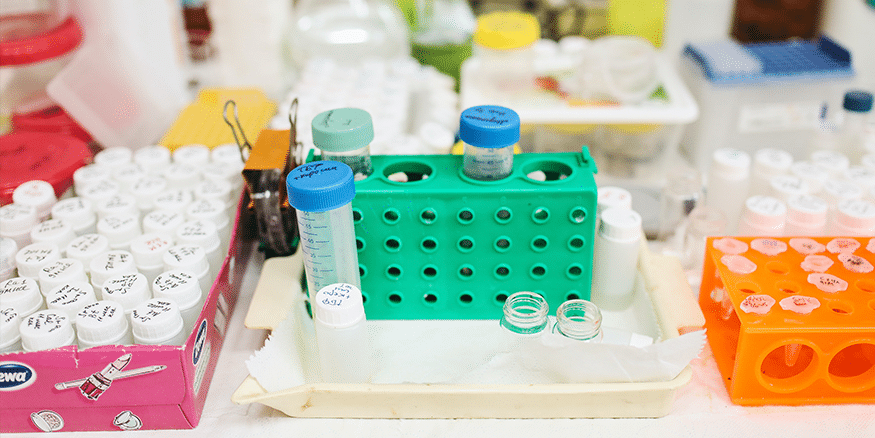
Fecal Calprotectin Test
A non-invasive laboratory test, called Fecal Calprotectin, is readily available as a helpful diagnostic tool to monitor individuals with inflammatory bowel disease (Crohn’s disease, ulcerative colitis, indeterminate colitis) and to distinguish from irritable bowel syndrome.
Calprotectin is a protein found in human blood, saliva, cerebrospinal fluid, and urine when some part of the body is inflamed, although it is not always possible to tell the location of the inflammation during testing of these fluids. When detected in the stool, calprotectin has a direct relationship (consequence of neutrophil degranulation) to bowel mucosal damage, characteristic of inflammatory bowel disease.
If the test finds a large amount of calprotectin present in the stool, it is more likely that the patient has inflammatory bowel disease (IBD), while if the test comes back with low or normal levels of calprotectin, it points more toward irritable bowel syndrome (IBS), a functional condition of altered bowel habits with no inflammation.
This test is also helpful for individuals already diagnosed with IBD, as it can identify the level of inflammation. If a person diagnosed with IBD subsequently shows low levels of fecal calprotectin, this means that the inflammation is being controlled, so the treatment regime is working. When a person has increased symptoms (flare), a physician might request this test at different intervals to confirm inflammatory disease activity. It is important to remember that you can have inflammation without symptoms and symptoms without inflammation in IBD, so monitoring of an objective marker of disease activity, such as fecal calprotectin, is essential for optimizing treatment outcomes.
Compared to intestinal biopsy, this test is non-invasive, requires no bowel prep, and is effective. While a physician might still suggest colonoscopy and biopsy in some cases, the results of this test helps the physician to understand the effect prescribed medications are having on the IBD patient and, with that information, can adjust treatment without the need for a scope.
This test is costly but the Alberta and Quebec provincial health plans pay for this valuable test, as do many extended health insurance plans. We hope that other jurisdictions in Canada will also see the benefit of the fecal calprotectin test and provide it for their residents as well.
Different Characteristics of IBS & IBD
| Characteristic | IBS
Irritable Bowel Syndrome |
IBD
Inflammatory Bowel Disease |
| structural change in gut | no | yes |
| prevalence | 13-20% | 0.7% |
| age | all | all |
| gender | more common in females | about equal |
| race | all | all, but more in Jewish |
| geography | worldwide | Canada among the highest |
| seek health care | about 30% | virtually all |
| fever, anemia, rectal bleeding, malnutrition | no | yes |
| abdominal mass | no | sometimes |
| complications in gut, skin, joints, eyes | no | yes |
| life expectancy | normal | almost normal |
| need for surgery | no | often |
| physical disability | no | often |
| psychological co-morbidity | sometimes | sometimes |
| social inconvenience | often | frequently |
